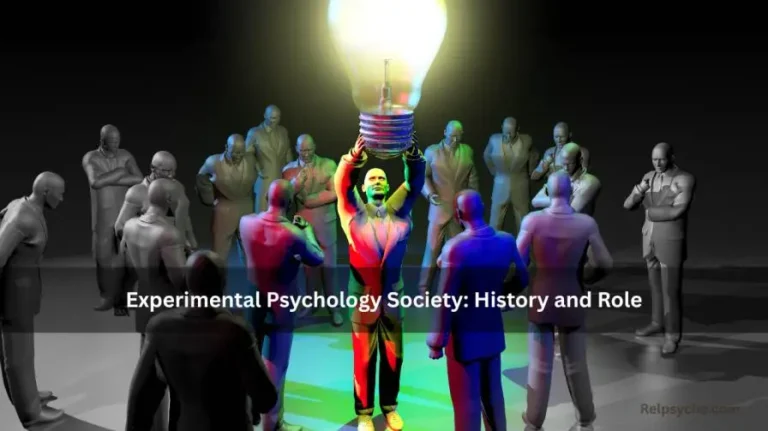Apathy: meaning, symptoms, and how to overcome it
We are facing a wonderful day, one that you will never see or experience again. The universe is offering you the chance to smile once more and do everything you set out to do with confidence and high self-esteem.
Still, in today’s world, we often feel pushed toward constant enjoyment and pleasure. This pressure can make it hard to accept moments of rest, indifference, or lack of motivation. At times, these moments fill us with apathy, leaving us unmotivated and detached.
This constant demand for satisfaction deserves attention when we talk about apathy. Its counterpart, “motivation,” is often celebrated, but it can also cast a shadow. Too much focus on motivation may hide the negative effects it can have on our overall quality of life.
In this article, we will explain the meaning of apathy, its main symptoms, and how you can overcome it.
Table of Contents
What is apathy?
Apathy is a motivational disorder that involves a significant decrease in goal-directed behaviors, for example, a lack of strength, interest, detachment, and indifference to some of the following events:
- Going out to eat with friends.
- Play sports.
- Get out of bed.
- Dressing elegantly for a date with your partner or friends.
- Job.
- Establish emotional bonds with friends and family.
- Discuss.
- Have sex.
- Eat.
The emotional response in people with apathy is greatly reduced, which is known as flat affect. There is an absence or reduction of emotions that typically occur in the individual’s life in response to a particular event. Whether emotions of sadness, anger, fear, joy, or shame, people devalue or create a lack of meaning for any of these emotions. This characteristic is frequently observed in schizophrenia and some depressive disorders.
Symptoms of apathy
Below are some of the characteristic symptoms of apathy :
- Cognitive indifference.
- Affective indifference.
- Lack of interest in personal care.
- Lack of interest in establishing emotional bonds.
- Lack of interest in starting a conversation.
- Difficulty getting up in the morning.
- Reduced or no emotional response.
- Loss of appetite.
- Lack of interest in sexual activities.
- Lack of interest in activities that involve contact with other people.
- Little interest in carrying out their responsibilities.
- Hopelessness.
- Loss of interest in having new experiences, learning.
- Reduction or feeling that thoughts are slow.
- The ability to make decisions becomes very complex for the person.
- Altered executive functions.
- Altered perception (especially feeling that time is going very slowly or not being able to perceive how much time has passed from one moment to the next).
Some of these activities may be stopped, resulting in apathy. Loss of appetite leads to poor food intake or a poor diet.
Difference between apathy and abulia
Apathy is related to an alteration in motivation, while abulia is implicated in a lack of willpower . When our apathy is very severe (a major deterioration in our functioning that prevents us from acting as we normally do and makes it difficult for us to make decisions or prevent us from acting or fulfilling our responsibilities), it is called abulia.
In apathy, there is a lack of interest but activities can still be carried out; in abulia, there is an absence of will to act or difficulty initiating and maintaining purposeful movements.
Apathy and depression
Apathy is one of the most common symptoms of depressive disorders . This state of disinterest, indifference, flattened emotions, and hopelessness can lead to a reduced will to act and also present with a lack of pleasure in activities that were previously called anhedonia. These symptoms are characteristic and necessary for the diagnosis of a depressive disorder.
Apathy: a survival mechanism
There was a point – writes Dr. Victor Frankl (1946) – in which the only emotional state convenient and logical to the circumstances is, precisely, the absence of emotion. Apathy functions as a necessary mechanism for self-defense within which reality is blurred and all effort and emotion is focused on a single task: the preservation of one’s own life . Dr. Frankl’s experience in the concentration camps of World War II allowed him to understand that after a certain time, prisoners became apathetic towards the suffering of others and their own.
The constant exposure to violent or aversive stimuli leads to a progressive loss of the ability to experience physical, emotional, or cognitive discomfort. The subject becomes—as Dr. Frankl explains—a non-sensitive entity.
Apathy as a survival mechanism manifests itself in our activities even when we’re not in a concentration camp. When we’re suffering from a breakup, the death of a loved one, the failure of a bad business, or professional frustration, the last thing we think about is smiling and enjoying the wonderful day we’re having.
Emotions of sadness or anger may arise, but they are unavoidable because emotions cannot be controlled. This is where apathy acts as a protective balm , allowing us a space of solitude and indifference to the needs of others, especially that external, compelling need: “You have to be well and smile, you still have life and you can boost your self-esteem!”
Depriving emotions amplifies apathy and makes it chronic by preventing it from living and existing in the sufferer’s life. This is where we provide an opportunity to analyze a consistent principle in self-help books like Positive Thinking .
The danger of positive thinking
Being happy, stepping out of your comfort zone , smiling, being the best version of yourself, never settling for less, and never giving up are not a cure. However, self-help books, media coverage, colorful notebooks, mugs, and photographs inundate us with this idea.
The problem arises when these motivational phrases are used to force people to live in a kind of dictatorship of happiness where, even when everything goes wrong, the important thing is to remain positive and smiling.
When someone is diagnosed with cancer, it’s very common for those around them to stress the importance of staying positive. This tendency to force someone to be happy can lead them to isolate themselves from their surroundings for fear of being criticized for being sad, anxious, or worried. Every emotion has its function . Sadness, for example, allows us to adapt to a significant loss in our lives; it can also lead us to an introspective isolation where we grieve for the loss and begin to understand the effects it will have.
Trusting our health to these motivational phrases can lead to a level of self-importance and perfectionism . People may feel they’ll never live up to expectations and remain in a process of frustration and guilt, which can lead to anxiety disorders , eating disorders , or mood disorders .
How to overcome apathy
The article described apathy as a survival mechanism that we are often deprived of. The corollary of this opportunity to open the door to apathy allows people to restructure everything that causes them deep pain, widespread disinterest, indifference to things that may be relatively wonderful, and a terrible emotional decline.
Listening to the people we love and talking about this experience of apathy ourselves allows our emotions to be respected and expressed, allowing us to move through our phases of apathy.
How do you combat apathy? In apathy, we must listen, explore, and prioritize the following situations:
- The things we disagree with.
- What are our priority interests ?
- Be aware of the emotions we are experiencing.
- The possible causes of my emotions.
Each of these situations is best addressed by a clinical professional.
This article is for informational purposes only; Psychology-Online does not have the authority to diagnose or recommend treatment.

Conclusion
Apathy is more than just a lack of interest. It is a serious condition that affects emotions, behavior, and relationships. While it can sometimes act as a survival mechanism, long-term apathy reduces quality of life.
By understanding the meaning of apathy, learning its symptoms, and applying ways to overcome apathy, people can regain balance, motivation, and joy. If apathy continues for a long time, professional help is always the best step forward.
Recovering from apathy takes patience and small steps. It is important to remember that emotions can return, and motivation can be rebuilt over time. With the right care, support, and positive habits, anyone struggling with apathy can find hope again. Choosing to face apathy is the first step toward a healthier and more meaningful life.
Ready to take the next step in your personal growth? Explore expert services — from therapy to life coaching — available on Fiverr.
If you want to read more articles similar to Apathy: meaning, symptoms, and how to overcome it, You Need to Know we recommend that you enter our Psychology category.
FAQs
1. What is the main cause of apathy?
Apathy is often caused by stress, depression, or medical conditions. Sometimes, it can appear after trauma or major life changes that leave a person feeling emotionally drained.
2. How do I know if I have apathy or depression?
Depression usually includes sadness and hopelessness, while apathy focuses on lack of motivation and indifference. However, the two often occur together, so it’s best to consult a mental health professional.
3. Can apathy go away on its own?
Mild apathy can fade with rest, lifestyle changes, and support. But if it continues for weeks or months, it may need therapy or medical attention.
4. What is the difference between apathy and laziness?
Laziness is a choice to avoid effort. Apathy is a condition where people feel no drive or emotion to act, even when they want to.
5. What is the best way to overcome apathy?
The best way is to start small, stay connected to others, and seek professional guidance if it lasts too long. Therapy, healthy habits, and support systems are key.
References
- Frankl, V. E. (1946). Man’s Search for Meaning. Beacon Press.
- Marin, R. S. (1991). Apathy: A neuropsychiatric syndrome. Journal of Neuropsychiatry and Clinical Neurosciences, 3(3), 243–254.
- Robert, P. et al. (2009). Proposed diagnostic criteria for apathy in Alzheimer’s disease and other neuropsychiatric disorders. European Psychiatry, 24(2), 98–104.
- Levy, R., & Dubois, B. (2006). Apathy and the functional anatomy of the prefrontal cortex–basal ganglia circuits. Cerebral Cortex, 16(7), 916–928.
- Victor E. Frankl. (1946).
Man’s Search for Meaning. Herder Publishing.

I’m Emma Johnson, a psychologist who loves to write and share ideas.
I enjoy making psychology simple so everyone can understand and use it in daily life.
If you’d like to talk, ask questions, or work together, feel free to reach out.
Let’s learn and grow in the world of psychology together!








One Comment